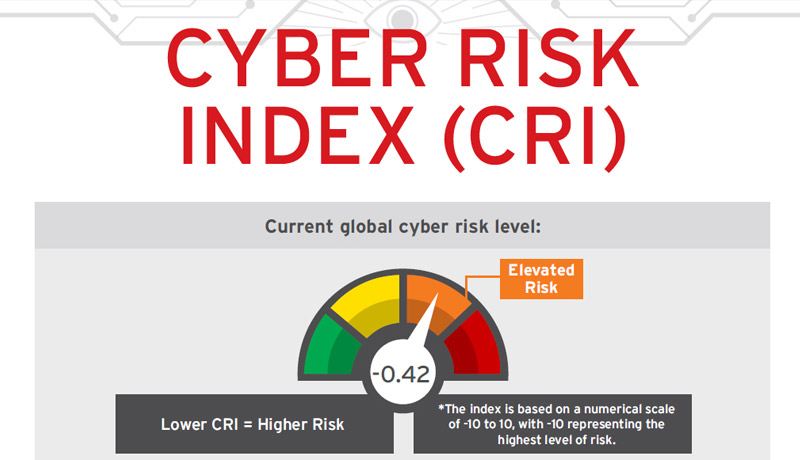
Trend Micro Cyber Risk Index has forewarned enterprises in the MENA region of elevated cyberattacks in 2022. According to the survey, 80 percent of global organizations expect to have a data breach affecting customer data within the next 12 months. The report warns MENA firms to re-evaluate and re-establish their cybersecurity posture in order to resist advanced threats.
The biannual Cyber Risk Index (CRI) report from Trend Micro assesses the gap between respondents’ cybersecurity readiness and their likelihood of being attacked. The CRI polled more than 3,600 organisations of all sizes and industries from around the world in the first half of 2021. The CRI is calculated on a scale of -10 to 10, with -10 indicating the highest amount of risk. The current global index is -0.42, which is slightly higher than last year and indicates an “elevated” risk. The full report can be found here.
According to the report’s key results, 86 percent of respondents indicated it was very likely that they will experience significant cyber-attacks in the next 12 months, up from 83 percent the previous time. In addition, compared to 23 percent in the prior survey, 24 percent experienced 7 or more cyber-attacks that compromised networks/systems. In addition, 21% had 7 or more breaches of information assets, compared to 19% in the previous report. In the prior year, 20% of respondents claimed they had had seven or more breaches of consumer data, up from 17% in the previous report.
“It is our prime responsibility to spread maximum awareness and safeguard the enterprise fraternity in the MENA region from lurking cyber risks,” said Dr Moataz Bin Ali, VP and Managing Director, Trend Micro Middle East and North Africa.
Further explained, “The Trend Micro’sCRI gives us an insight toward battling those very risks that plague the region’s businesses. The challenges for an organization’s infrastructure and data protection are a persistent matter that needs to be faced with an equally unrelenting, multi-layered protection. Fully utilizing this resource will empower the region’s organizations to prioritize a smarter security strategy, safeguard their data, and be thoroughly prepared by detecting and defending what matters most.”
Customer churn lost IP, and key infrastructure damage/disruption are the top three unfavourable repercussions of an assault, according to the research. Man-in-the-middle attacks, ransomware, phishing and social engineering, file less attacks, and botnets are among the top cyber hazards highlighted in the research.
Organizational misalignment and complexity, as well as cloud computing infrastructure and providers, remain the top security concerns to infrastructure, as they were last year. Customer turnover, intellectual property theft, and disruption or damage to vital infrastructure were also cited as important operational risks for firms worldwide by respondents.
Limitations for security leaders who lack the authority and resources to achieve a strong security posture and organisations struggling to enable security technologies that are sufficient to protect their data assets and IT infrastructure are the main challenges for cybersecurity preparedness.